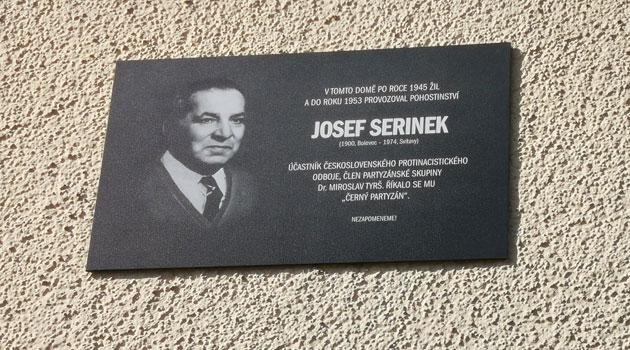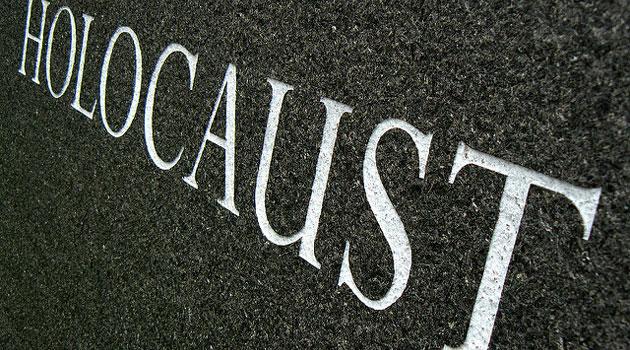Czech town unveils plaque to the "Black Partisan" Josef Serinek

On Saturday, 8 May, on the occasion of Victory Day, a memorial plaque was unveiled in Svitavy, Czech Republic to Josef Serinek, a participant in the Czechoslovak anti-Nazi resistance given the nickname of “Black Partisan” because of his Romani nationality. “So his bravery, honor and legacy will not be forgotten, a memorial plaque has been installed at the house where he spent important years of his life,” said representatives of the town of Svitavy on the installation of the plaque for the partisan whose cover name had also been “Black”.
The commemorative ceremony was attended by former soldier and current vice-chair of the Czech Government Council for Romani Minority Affairs, Zdeněk Guži, who gave a brief speech in front of the building on Pražská Street where the “Black Partisan” lived for several years after the war and ran a pub; Guži expressed gratitude to the town, to the Museum of Svitavy, and to the owners of the pub “At the Partisan” (“U Partyzána“), which still runs there. Josef Serinek (1900-1974) was born in Bolevec in what was then part of the Austro-Hungarian Empire (and today is the Plzeň 1 Municipal Department) but was very soon orphaned and taken in by his mother’s sister.
Serinek trained to be a gardener but dealt in all sorts of professions, most often traveling sales, and occasionally also in smuggling goods across the Czech-Saxon border. At the turn of the 1930s and 1940s he was convicted of smuggling and had to serve a longer sentence, first in Nuremberg and then in Cheb.
By the time of his release from prison, the Protectorate of Bohemia and Moravia had already been imposed and had banned living on the road, so Serinek made a living for himself and his family as a stable hand in the farmyards of the West Bohemian village of Bohy. He, his wife and their five children were then forcibly interned at the Zigeunerlager in Lety, from which he managed to escape.
PHOTO GALLERY
After a circuitous, painful trek through the countryside, Serinek eventually found a hideout in the Czech-Moravian Highlands, where he soon established contact with the resistance networks there. He began to bring together escaped Soviet prisoners of war, whom he either aided with fleeing further east or convinced to join the Čapajev forest division of partisans, the numbers of which fluctuated, and which later also included Czech youth who were avoiding the conditions of all-out forced labour in the German Reich; he conducted operations with this division near Nové Město na Moravě and Poličky.
Serinek collaborated on this endeavor with the Jermak airdrop by the Soviets and with the Dr. Miroslav Tyrš and Master Jan Hus partisan divisions, for whose members he arranged deliveries of clothing, food and tobacco. After securing weapons for his own division, he led a retaliatory attack on Přibyslav, executing the local gendarmes who had shot General Vojtěch B. Luža, the commander of the resistance group called Council of Three.
Toward the end of the war, Serinek triggered the uprising in Bystřice nad Pernštejnem, where he led an attack on the local school and disarmed the SS units housed there. On Saturday, 8 May 2021, people all over the Czech Republic marked the 76th anniversary of the end of the Second World War in Europe.
Czech President Miloš Zeman marked the occasion by visiting the National Memorial in Prague and laying a wreath at the Tomb of the Unknown Soldier there on Vítkov Hill. The day on which Nazi Germany capitulated in 1945 is celebrated by the Czech Republic and by most European countries as a state holiday.
